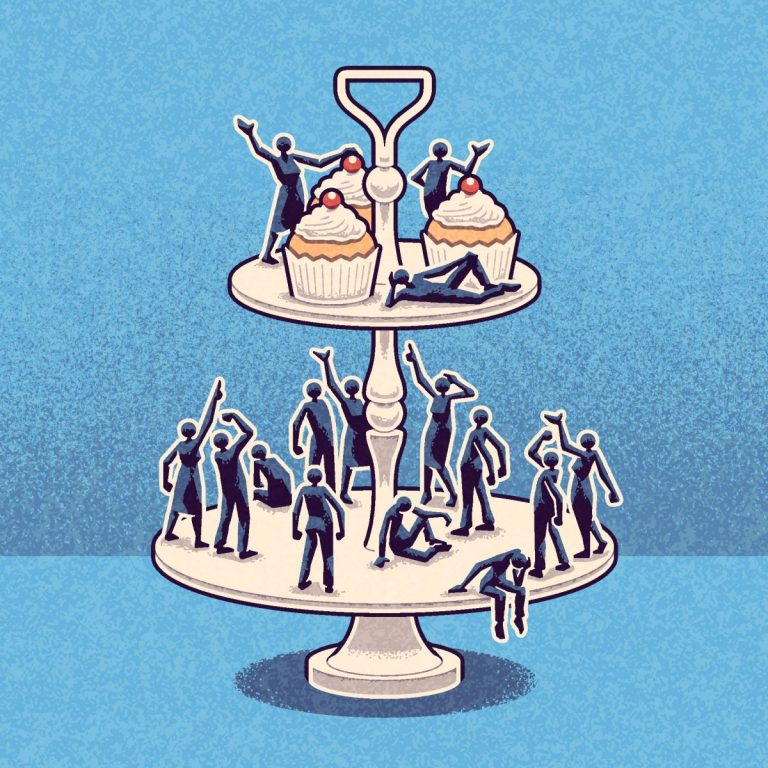
Life is a status game, and is identified in three known ways, through which we reach the top: dominance, competence and virtue.
By Nazarul Islam
The battle for status has defined human history; in the form of Kleos or “glory”, it provides the impetus for Homer’s heroes; it has been the subject of countless works of English literature; and the inspiration for absurd fashions from codpieces to ruffs to unwearable high heels. More recently, as status markers like accents or dress have leveled, and traditional barriers to social climbing (or abseiling) reduced, so the ways of signaling status have become more nuanced – And in some way, even more competitive and vicious.
Life is a status game, and is identified in three known ways, through which we reach the top: dominance, competence and virtue (although most people use a combination of two or all three). It is the last of these which is the most interesting, and sometimes the most dangerous, inspiring immense cruelty.
Status is extremely important to well-being, so much so that it can have a profound effect on our health. People more successful in their careers tend to live longer, even taking into account confounders like smoking. The demoralizing feeling of lower social status can send our bodies into a sort of crisis mode which in the long term puts us at higher risk of neurodegenerative disease, heart disease and cancer.
Being a loser can be fatal, and people who feel low status are also more likely to become ungenerous towards others and pick up destructive personal habits such as eating more sugary food — unsurprisingly, being overweight is an obvious status signal in rich countries.
They are also more likely to kill themselves, with loss of job or divorce being the biggest risk factors for male suicide in middle age, for men who find themselves no longer provider or patriarch. Some people find the status game so stressful they simply drop out, most notoriously in Japan where more than half a million hikikomori have “social withdrawal syndrome”, locked in their bedroom doing God-knows-what.
Such is the beneficial effect of high status that most workers would choose a fancier title over a pay rise; in comparison having more power does not equal a happier life, heavy being the head that wears the crown. Our lust for status, in contrast, is insatiable.
When a high-status individual does something, author Will Storr, writes, “our subconscious copy-flatter-conform programming is triggered and we allow them to alter our beliefs and behavior… We mimic not just their behavior but their beliefs. The better we believe, the higher we rise. And so faith, not truth, is incentivised. People will believe almost anything if high-status people – whether priests, generals, actors, musicians, TikTokkers – suggest them.” Indeed they will profess to believe quite obviously untrue things.
Unsurprisingly, therefore, a huge amount of effort goes into signaling and detecting. “High-status people tend to speak more often and more loudly,” he notes, and “are perceived to be more facially expressive; achieve more successful interruptions in conversation; stand closer to us; touch themselves less; use more relaxed, open postures; use more ‘filled pauses’ such as ‘um’ and ‘ah’ and have a steadier vocal tone”. In fact our voice tone and even the frequency of our voice – the hum – changes to match the higher-status people.
We have known many workplaces where people come to imitate the laugh of the boss; you could hear them howling together, vocally members of the same tribe.
These signals dominate office and corporate life. A friend who works in finance recounted how Zoom conferences were far more exhausting because in real-life meetings you can easily tell from body language who was important, and mentally zone out when low-status clients started babbling away.
The human need for status can be hugely beneficial. Visit any major art gallery and you will see the result of this intense competition in late medieval Italy, where rival families hired the greatest artists and architects to raise their status. In 18th century Britain, membership of clubs and societies became a social marker, the result being that the number of learned societies rose from 50 in 1750 to 1,500 in 1850, with an enormous impact on education levels, wealth and a variety of other measures.
Another example he cites is British cooking, which improved from the 1980s with the rising prestige associated with leading chefs, influenced by the very alpha male Marco Pierre White.
It is worth noting that, where something is low status, it will often be female-dominated because men place huge emphasis on employment status: whereas the traditional English male chauvinist believed that women belonged in the kitchen, his French equivalent saw it as the exclusive domain of the all-male culinary art.
But just as often status games can be toxic, and do dreadful things to people — especially if religion, politics or some other marker of identity are involved.
[author title=”Nazarul Islam ” image=”https://sindhcourier.com/wp-content/uploads/2021/05/Nazarul-Islam-2.png”]The Bengal-born writer Nazarul Islam is a senior educationist based in USA. He writes for Sindh Courier and the newspapers of Bangladesh, India and America. He is author of a recently published book ‘Chasing Hope’ – a compilation of his 119 articles.[/author]